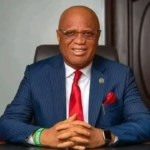Back in 2005, in Imo State, along the infamous Aba-Owerri Road, I encountered one of the most challenging moments of my early career. It was rush hour, and the notorious traffic congestion-exacerbated by poor road conditions and the activities of roadside mechanics just past Naze when coming from Aba-was at its peak. At that time, I had just been appointed Sector Commander of the state, marking my first command role in a law enforcement career that would span nearly three decades. Over the years, I would take on other significant commands, including leadership roles in the Federal Capital Territory, Lagos, Abuja, Jos, and Port Harcourt.
In Owerri, the state capital, my primary mission extended beyond enforcing traffic regulations; it was about dismantling the daily gridlock that had become a source of public frustration and a blemish on the reputation of the Command. The traffic chaos was not only a logistical nightmare but also a public relations challenge that demanded innovative solutions.
To tackle this, we implemented a variety of measures: intensified patrols, enhanced public awareness campaigns, and strategic engagement with key stakeholders. We reached out to the mechanic community, identified as a significant contributor to the traffic woes, and also engaged members of the timber shade (ogbo-osisi) community. Some of these individuals were recruited into a Special Marshal unit to assist with traffic management in their neighborhoods, which also experienced heavy congestion.
While these initiatives began to foster cooperation and some improvement, many commercial and private vehicle drivers from Aba and other areas remained resistant to the new traffic protocols. As Sector Commander, with my office located on the very road plagued by congestion, it was personally frustrating to be caught in the same traffic jams I was striving to resolve.
One day, while heading home, I noticed my patrol team struggling to control a defiant driver. I stopped to intervene, which boosted the morale of my officers. I ordered the vehicle to pull over, but the driver initially refused, mistaking me for a routine officer. As I persisted, operatives from the Nigerian Drug Law Enforcement Agency (NDLEA) arrived and assisted in detaining the driver.
The driver boldly claimed to be a soldier from the Amphibious Battalion in Port Harcourt but failed to produce any identification. I directed that he be taken to the NDLEA Command Headquarters on Aba-Owerri Road. After thorough questioning alongside the State NDLEA Commandant, I contacted the Nigerian Army Brigade Commander at Obinze, who instructed that the impostor be brought to their facility. Under pressure, the man eventually confessed. Despite public appeals for leniency, he was detained for two weeks before being released on the condition that he would never impersonate a security officer again.
In a previous article, I mistakenly stated that 5,000 people die daily on Nigerian roads; the accurate figure is approximately 5,000 annually. Please disregard that error. The Owerri incident is just one example among many involving impostors-ranging from civilians and politicians to actual security personnel-who abuse their perceived authority.
Another notable case occurred on the Abuja-Lokoja Road in the Federal Capital Territory. While leading a special patrol, we stopped a vehicle traveling against traffic. The driver, instead of cooperating, brandished a service pistol and threatened to shoot anyone who tried to detain him. Thanks to the superior numbers of my team, we subdued him and restored order.
Such incidents are not isolated. They involve a spectrum of individuals: civilians, politicians, active and retired security officers, fraudsters, and even uneducated touts. One senior security officer once flaunted his state house credentials to evade a traffic stop, arrogantly dismissing my officers’ authority. His sense of entitlement was so inflated that he openly challenged the legitimacy of my team’s actions.
Some impostors go as far as verbally abusing officers. One individual, after being arrested for a traffic violation on a Saturday morning, insulted my men, calling them worse than rats. This man was accompanied by a so-called “oti nkpu” (hype-man), who happened to be the head of a security agency. When the agency head called me, I explained the situation, which angered him. He warned the offender never to contact him again due to his disrespect for uniformed personnel. The man left my command humbled and contrite.
Even foreign nationals, particularly from Asia, have been involved in such confrontations. They sometimes threaten to summon high-ranking security officials to intimidate officers, adopting the infamous “Do you know who I am?” attitude that has become synonymous with impunity.
If you missed my previous article titled “DO YOU KNOW WHO I AM,” I urge you to read it. In that piece, I explored the identity crisis that plagues impostors and impersonators-individuals who, despite lacking genuine authority, arrogantly claim power and status. In Nigeria, these people are often referred to as “money miss road,” flaunting small fortunes to mask their insecurity.
These impostors disregard traffic laws for various reasons: a supposed urgent meeting with nonexistent VIPs, a desire to avoid delays, or simply to assert dominance. Their behavior is a facade designed to escape accountability. They exhibit a misplaced sense of entitlement, believing their status exempts them from the rules that govern everyone else.
My advice to such individuals is simple: before you take to the road, remember that traffic accidents do not discriminate by class, color, religion, or gender. Death is the ultimate equalizer, and chronic traffic offenders risk paying the highest price. Regardless of your social standing, age, or gender, the grave awaits without regard for your wealth or influence.
Many of these offenders engage in reckless behaviors-running red lights, using mobile phones while driving, overtaking dangerously on curves and in populated areas, and speeding excessively. It makes no difference if the vehicle is borrowed or bears official government plates; some drivers in convoys act as if the lives of others are expendable, ready to force their way through traffic and threaten harm if challenged, boasting that “nothing will happen” to them.






















